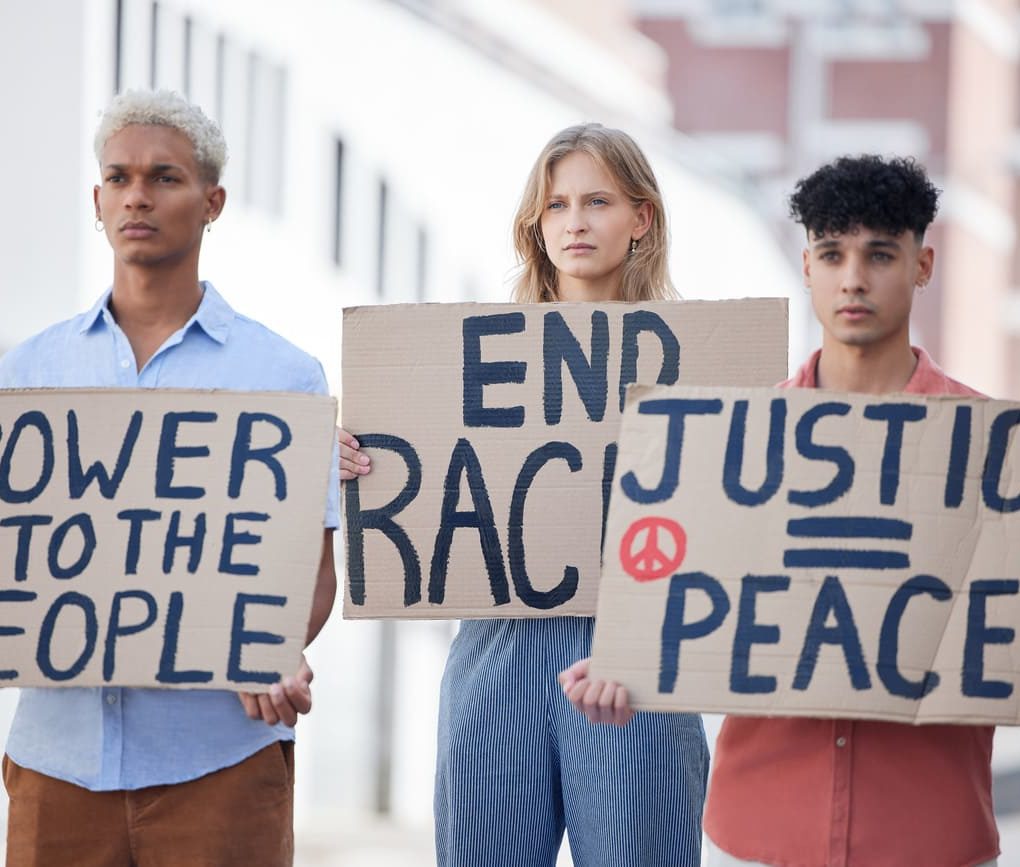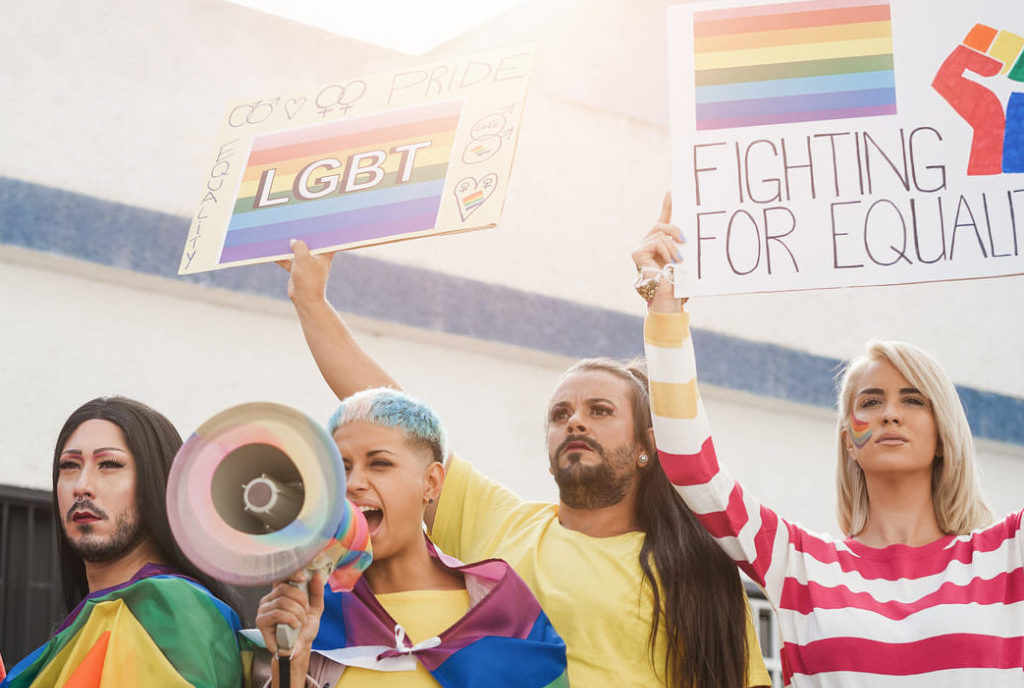
The Fee Is Free Unless You Win.
Top Rated Employment Law Firm
Protecting Families Since 1995
$450 Million Won
TABLE OF CONTENTS
Race discrimination in Miami is when an employer treats an employee or job applicant poorly due to his or her race. Race is defined as a group of people sharing similar characteristics, such as hair texture, bone structure, facial features, eye shape, skin color, etc. When an employer fires someone, refuses to hire someone or uses racial slurs against someone because of the employee’s race, the employer is committing race discrimination and that is illegal. For the past 25 years, Derek Smith Law Group has helped Miami’s victims of race discrimination in the workplace find justice for this treatment.
Race discrimination in Miami is the unfair treatment of harassment of an employee or job applicant based on his or her race. Unfair treatment and harassment include:
Race discrimination in the workplace can occur between people of the same race or different races. No race is exempt from race discrimination. Racial discrimination can even affect an employee or job applicant because he or she is married to a person of another race or involved in an interracial marriage. Whether you are white/Caucasian, African American, Latino, Asian-American, or Middle Eastern, you are not excluded from becoming a victim of race discrimination.
Sometimes, racial discrimination in the workplace is not as blatant as we are led to believe. That does not mean race discrimination in the workplace does not exist. Most employers are just better at making it appear less obvious. Here are some things to look for to determine if you are experiencing racial discrimination in your Florida workplace:

Employers, co-workers, supervisors, clients, and anyone associated with a company are prohibited from discriminating against an employee or job applicant through federal and state laws. Federally, Title VII of the Civil Rights Act of 1964 makes it illegal for any employer, agent of a company, or associate of a company of 20 or more employees to treat any employee or job applicant because of his or her race.
Florida also prohibits such actions through Title XLIV of the Florida Civil Rights Act. According to Florida law, it is illegal for an employer with 15 or more employees to harass an employee or treat any employee or job applicant unfairly because of his or her race.
There are several types of ways to prove racial discrimination in the workplace. The types of evidence most commonly used include direct evidence, disparate actions, and discriminatory policies.
Direct evidence is when the employee or job applicant is told directly or receives an email (by accident or intentionally) that he or she was treated unfairly because of his or her race. This also includes the racial slurs that are directly said to an employee or job applicant and racially targeted jokes or remarks. Some attorneys call this type of evidence the “smoking gun.” It is not the most common type of evidence, but it is not exactly rare.
Disparate actions are the actions that the company, supervisor, co-worker, or associate take that are discriminatory. This type of evidence usually relates to the victim of racial discrimination being passed over for some type of employment opportunity in favor of an employee or job applicant of a different race. This will usually be a series of actions that demonstrate a culture within the company.
Finally, some policies are discriminatory. Such policies may include not allowing people to maintain certain hairstyles or clothing styles that are race-related. It may also include issues such as certain employees are only allowed to work in certain areas or on certain client files because of racial issues.
The Equal Employment Opportunity Commission (EEOC) sets a time limit of 300 days for a victim of race discrimination in the Miami workplace to file a claim under Title VII of the Civil Rights Act of 1964. The EEOC will then investigate the claim and determine whether the issue is truly a racial discrimination claim. If the EEOC finds enough evidence to suggest that a claim for race discrimination exists, it will issue the employee or job applicant a Right to Sue letter, at which time a complaint can be filed in federal court.
The Florida Commission of Human Relations (FLCHR) governs the Title XLIV of the Florida Civil Rights Act. The FLCHR sets the time limit of 1 year from the date of the last incident to file a claim for race discrimination in the workplace.
Florida courts want to help any victim of racial discrimination receive the justice he or she deserves. Some of the relief available through the court include:
which are damages designed to punish the employer for racial discrimination. These damages are often based in part on the gross profits of the company, the nature of the discrimination, and whether this is the first offense.
Lawsuits do not have a definitive timeline. There are many variables that will affect how long the lawsuit for racial discrimination will last. Typically, these matters can last anywhere from 4 to 6 months to one year or longer. If the employer is willing to negotiate the settlement in negotiations prior to appearing in court, it is possible the lawsuit will settle within 4 to 6 months of receiving the Right to Sue letter.
However, if the employer does not want to negotiate or is not willing to offer a fair settlement, then the case will likely go to trial. The process to get to trial can take several months to over a year, depending on how long the employer takes to file the required answers and other documents and how much discovery (or pre-trial preparation) is required. The entire process can take one to two years before a judgment is entered.
Discover how our expertise has helped clients overcome their legal challenges and achieve successful outcomes.
View All TestimonialsOlivia is the best! Oliva was very thorough, patient, and very detailed and descriptive regarding the process. She was very supportive of my sexual harassment case. From the very beginning, she communicated and would provide me with any updates and she was always available when I needed anything. More importantly, she always extended that comfort level of trust which always made me feel at peac... Read Full Testimonial
Casey Barkhordarian is a fabulous attorney to work with. He explained everything to me about the case (including the millions of questions I asked) right from the start of our very first meeting. He did so in a way that I could understand and was very prompt and clear with communication the entire time. Casey Barkhordarian is a very competent and knowledgeable lawyer to have on your team. I def... Read Full Testimonial
Matt Finkleberg is by far the best attorney I’ve ever hired! From the outset, it was evident that he was not just another lawyer; Matt is nothing short of extraordinary. He possesses the ability to do his job phenomenally while somehow managing to give me hope during one of my darkest of hours. Matt consistently returned my calls promptly, regardless of my questions, confusion, or self-doubt ... Read Full Testimonial
I cannot speak highly enough about my experience working with Matt Finkelberg. From the very beginning, Matt approached my case with an incredible level of professionalism, knowledge, and dedication that immediately put me at ease. It is rare to find an attorney who not only possesses an impressive depth of legal expertise but who also truly cares about the well-being and best interests of thei... Read Full Testimonial
Olivia is absolutely outstanding! She understands the emotional side of your case while being able to find the legal aspects of holding the employer accountable for breaking the law! Made a really terrible situation a little easier by explaining everything and helping me get everything in order and in the right hands. I would not use anyone else! Call them for any sexual harassment case... You ... Read Full Testimonial
This law firm is absolutely amazing!!! They went so above and beyond for me!!! I am so grateful for all their help with my difficult case!!! If you need a lawyer, you will be in great hands with their firm!!! And wait until you see the office! The building is so high tech I couldn't figure out how to get in the elevator lol!
It was a pleasure to have Casey represent and help me for my employment case. It was my first time needing an attorney, so I was a bit apprehensive at first – Casey took the time to answer all of my questions and fully explain everything to me, which really put me at ease. He was very attentive, supportive, and knowledgeable throughout the whole process – Casey would ask questions to ensure... Read Full Testimonial
matt is an excellent attorney. he handled my case with the utmost care and highly exceeded all expectations. i could not recommend derek smith and esp. matt finkelberg enough
matt is an excellent attorney. he handled my case with the utmost care and highly exceeded all expectations. i could not recommend derek smith and esp. matt finkelberg enough 🙂
Matt handled a suit against the City of LA and members of the a Neighborhood Council for racial discrimination and harassment. Ths was the first suit of this type filed on a Neighborhood Council Matt handled it with poise and above all professionalism. He walked me through the 3 year process and above all provided moral support and encouragement as I still experienced racism and harassment duri... Read Full Testimonial
Matt Finkelberg is Amazing and Devotional! It was a pleasure to have Matt represent me for my employment case. He was very attentive, supportive, and knowledgable throughout the whole process. Whenever I reached out he responded promptly which I greatly appreciated. Matt fought diligently and hard throughout my case to make sure my case was represented best. Thank you again Matt for everything.... Read Full Testimonial
It was a pleasure to have Casey represent and help me for my employment case. It was my first time needing an attorney, so I was a bit apprehensive at first – Casey took the time to answer all of my questions and fully explain everything to me, which really put me at ease. He was very attentive, supportive, and knowledgeable throughout the whole process – Casey would ask questions to ensure... Read Full Testimonial
Our dedicated attorneys are ready to fight for your workplace rights and ensure justice!
If you have been victimized by your employer, co-worker, supervisor, or business associate for your race, you will need to prepare before you file your claim of race discrimination in the workplace. Here are some tips to help you prepare for your case:
No one deserves to be fired, refused employment, denied a promotion, denied training or benefits, demoted, or harassed in the workplace because of his or her race.
If you are the victim of workplace race discrimination in Miami, the Derek Smith Law Group can help you get justice. Contact us today at (305) 946-1884 for your free consultation. We do not get paid until you win your case.

Our experienced legal team provides reliable services in key U.S. cities, ensuring expert assistance for workplace discrimination and employment law matters wherever you are located.
Our experienced employment lawyers are dedicated to resolving your workplace rights concerns with expertise and care.